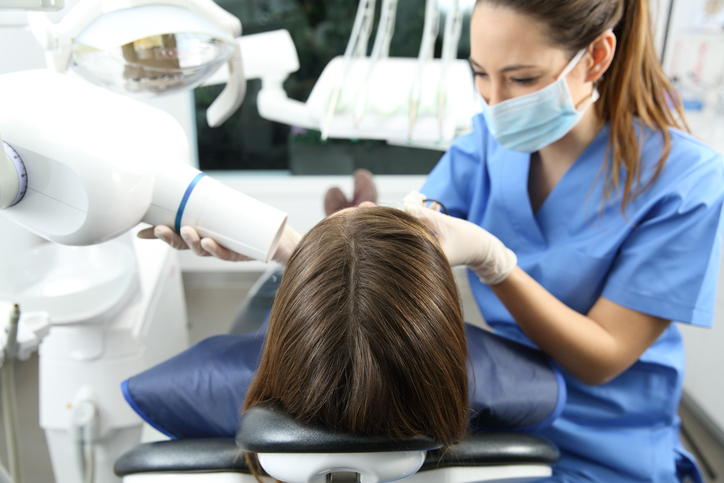
While communication might not be the first skill that comes to mind when thinking about a dental assistant career, this particular skill is essential within any health care role. Dental assistants not only perform administrative and supportive duties around the office, they also spend much of their time communicating with patients, family members, dentists, dental hygienists, and other professionals within the office setting. If you’re considering a career as a dental assistant, you’ll be responsible for assisting dentists and dental hygienists with procedures, surgeries, and general patient care—answering phones and scheduling appointments, maintaining inventory and patient records, educating patients on oral hygiene, and more. Below, discover why effective communication skills will improve your ability to succeed as a dental assistant!
1. Communication Skills Help Those with Dental Assistant Training to Educate Patients
As a dental assistant, effective communication will help you to interact with patients and equip them with important information about their oral health and hygiene practices. One of the main duties of a dental assistant is to educate patients about oral hygiene. Many patients lack a comprehensive understanding of proper oral hygiene practices, or may be anxious about their oral health situation.

As a professional with dental assistant training, effective communication skills will enhance your ability to gauge a patient’s understanding of the information you are giving them, enabling you to tailor your educational approach to the patient in question. Your capacity for communication will help patients to improve their personal oral health and hygiene, as you’ll be able to convey the importance of good oral hygiene practices to those you speak with during your career.
2. Communication Skills Enable Dental Assistants to Succeed in the Front Office
Within many dental offices, dental assistants perform a range of administrative duties in addition to their responsibilities surrounding patient care. Dental assistants might answer the phone, schedule appointments, place orders for new supplies, and conduct duties surrounding billing and insurance. In order for dental assistants to effectively perform these duties, they must be able to communicate with a wide range of people with many different backgrounds, ages, and educational levels. The ability to listen carefully as well as convey important information, whether in person, on the phone or via email, will enhance your success as a dental assistant. Improving your communication skills will enable you to avoid misunderstandings and errors which could impede the efficiency or damage the reputation of the dental office.

3. Dental Assistants Communicate with Dentists When Caring for Patients
In addition to educating patients and taking care of administrative duties, dental assistant program graduates also provide support to dentists and dental hygienists in certain procedures and patient care processes. Dental assistants must be able to communicate with these professionals in order to effectively anticipate their needs, provide accurate assistance, and ensure a safe and efficient procedure. As a dental assistant, your communication skills will help you to develop a strong working relationship with both dentists and dental hygienists, enhancing your ability to support them when caring for patients and performing difficult procedures.
When you develop effective communication skills as a dental assistant, you’ll be a strong asset to any dental practice, ensuring that operations go smoothly and patients are well cared for.
Are you ready to pursue your dental assistant diploma?
Enroll in a program with Oxford College today!






